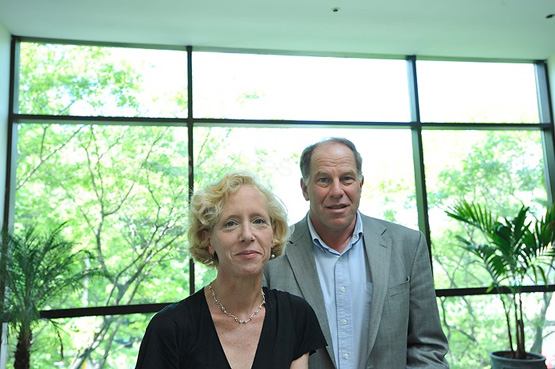Teaching Students to Be Good Listeners
Student Support Network nominations due today

Suicide is the second leading cause of death among college students. The main cause of suicide: untreated depression. But more BU students will get the help they need, thanks to a new program that trains students to recognize the symptoms of depression in their peers.
The program, called the Student Support Network, was recently created by Sargent College’s Center for Psychiatric Rehabilitation.
“Students are ill equipped to deal with these problems, because it’s so unsettling to come into contact with it,” says Larry Kohn, cofounder of the program and director of development for the center.
The program is about to begin its third set of training sessions; nominations for candidates are due today, February 11. Students can be nominated by BU faculty, staff, and students who have previously been through the program. Program coordinators are looking for students who possess good judgment good communication skills, and the ability to engage with other students.
The training program, which runs six weeks, teaches students how to spot the symptoms of depression in their peers, how to react in situations involving depressed or suicidal peers, and how to refer students in need to professional services.
Kohn says that students often try to hide mental distress and “try to make it go away,” sometimes through drug and alcohol abuse. The program’s goal is to reduce the stigma associated with mental health issues and to teach students how to deal with a depressed peer.
“We’re trying to create a different culture on campus where everyone watches out for each other,” says Elizabeth Brennan (SAR’10), program coordinator for the Center for Psychiatric Rehabilitation.
The Student Support Network promotes “the empathy response,” says Kohn. “We want the volunteers to be able to listen, not judge, and get them to keep talking.”
Students who complete the program are not under any obligation to continue, but many do help with future sessions or become involved with Active Minds, a student mental health awareness group on campus. Both groups are part of the suicide prevention program at BU.
BU’s suicide prevention group, Active Minds, created BU Secret, which encouraged students to anonymously share their secrets on postcards that were displayed on campus.
Many students who have been trained believe that the program has helped them in all interactions with their peers.“I learned to be more aware of the signs of suicidal or depressive behavior that might have gone unnoticed because I thought they were rude, angry, or just having a bad day,” says one student. “It made me step back and assess how I interact with friends and what I can do to be a better support system for others.”
Dori Hutchinson, cofounder of the Student Support Network and director of services for the Center for Psychiatric Rehabilitation, and Margaret Ross, director of behavioral medicine at BU’s Student Health Services, applied for the Garrett Lee Smith Campus Suicide Prevention Program grant from the Substance Abuse and Mental Health Services Administration at the U.S. Department of Health & Human Services, which funds the program. Twenty-two other colleges also received the grant.
The program was originally modeled after Worchester Polytechnic Institute’s Student Support Network, which was launched three years ago.
The Student Support Network is accepting nominations for the spring 2011 program through today, February 11. To nominate a student, email BostonUniversitySSN@gmail.com.
Allison Thomasseau can be reached at althoma@bu.edu.
Comments & Discussion
Boston University moderates comments to facilitate an informed, substantive, civil conversation. Abusive, profane, self-promotional, misleading, incoherent or off-topic comments will be rejected. Moderators are staffed during regular business hours (EST) and can only accept comments written in English. Statistics or facts must include a citation or a link to the citation.